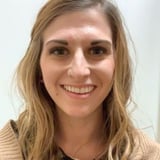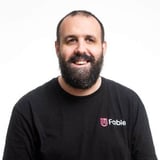Summary
Join us for an engaging Ask Me Anything (AMA) with Rachel Posman and John Calhoun, the authors of the upcoming book The Design Conductors: Your Essential Guide to Design Operations. This book acts as a comprehensive guide to DesignOps that will teach you how to successfully advocate for, build out, scale up, and ultimately operate design organizations. Rachel and John will share insights from their extensive experience in the field and answer questions in this interactive session. Together, let's explore how effective design operations can drive impactful outcomes and empower teams to achieve success. Walk away having gained valuable perspectives on the evolving landscape of design operations and the critical role it plays in delivering exceptional design solutions. Bring your questions about design operations and don't miss this chance to connect directly with the authors of this must-read DesignOps book!
Key Insights
-
•
Making design ops work visible is crucial for leadership buy-in and recognition, as noted by Rachel Poman.
-
•
John Calhoun emphasizes that the most powerful word in design ops vocabulary is no, to focus efforts on what truly matters.
-
•
Design ops roles have fuzzy boundaries and can risk becoming catch-all positions unless clear scope is defined.
-
•
The conductor metaphor positions design ops as orchestrators who enable design teams to harmonize efforts, serving as strategic partners rather than mere support staff.
-
•
Design ops practitioners come from diverse backgrounds beyond design, including program management, business, and specialist areas.
-
•
The HEROES framework offers six measurement categories specifically designed to demonstrate design ops impact across health, effectiveness, readiness, outcomes, ecosystems, and sentiment.
-
•
Product ops and design ops share many competencies and functions, differing mainly in organizational scope, often converging especially in smaller or leaner organizations.
-
•
User success leadership could unify product and design disciplines, shifting focus from departmental silos to shared outcomes.
-
•
AI is expected to disrupt design ops not just as a tooling evolution but as a paradigm shift where AI can become collaborators, reviewers, or even end users of design output.
-
•
Design ops teams tend to have more individual contributor roles than managerial ones, often functioning as lone wolves embedded within design orgs.
Notable Quotes
"Designers deserve support and infrastructure so they can really excel in their work. - Lou Rosenfeld"
"How are people, how are executives and leadership going to invest in you if you don’t show the work? - Rachel Poman"
"The most powerful word in design ops vocabulary is no. - John Calhoun"
"It’s okay to be bossy because we need leaders who are opinionated and thoughtful and have a point of view. - Rachel Poman"
"Design ops isn’t just a support role, it is a strategic partner. - Rachel Poman"
"Design ops work draws from design, program management, business skills, and specialist backgrounds. - John Calhoun"
"The HEROES framework stands for Health, Effectiveness, Readiness, Outcomes, Ecosystems, and Sentiment. - Rachel Poman"
"Product ops and design ops are way more alike than dissimilar; they just serve different orgs. - Rachel Poman"
"Why pick sides between product and design ops leadership? Why not both? - John Calhoun"
"AI won’t just be a tool for iterating designs, it will review them and even be the end user of products we build. - Rachel Poman"
Or choose a question:















More Videos
"If design didn’t move the needle, we wouldn’t be having this conversation."
Standardizing Product Merits for Leaders, Designers, and Everyone
June 15, 2018

"Space has meaning in a map—if you move components around without reason, it’s no longer a map."
Simon WardleyMaps and Topographical Intelligence (Videoconference)
January 31, 2019

"Many smartwatch designs assume male hands as default, excluding smaller wrists and diverse body types."
Sandra CamachoCreating More Bias-Proof Designs
January 22, 2025

"Appealing to stakeholders’ best interests helps build trust and rapport."
Darian DavisLessons from a Toxic Work Relationship
January 8, 2024

"After each interview, I input the transcript into ChatGPT and ask for three key takeaways that I can quickly share with stakeholders."
Fisayo Osilaja[Demo] The AI edge: From researcher to strategist
June 4, 2024

"Working with CEOs like Mark Templeton is like Dancing with the Stars — an interpretive dance of translating fuzzy ideas."
Uday GajendarThe Wicked Craft of Enterprise UX
May 13, 2015

"Investing in people and fostering collaboration always pays off in stronger teams and better user experiences."
Davis Neable Guy SegalHow to Drive a Design Project When you Don’t Have a Design Team
June 10, 2021

"Launching a design system is not a sprint, there’s no end, it’s always a continuous process."
Eniola OluwoleLessons From the DesignOps Journey of the World's Largest Travel Site
October 24, 2019

"Finding a single source of truth for design documents and artifacts is extremely hard because most tools operate in silos."
Aurobinda Pradhan Shashank DeshpandeIntroduction to Collaborative DesignOps using Cubyts
September 9, 2022

















